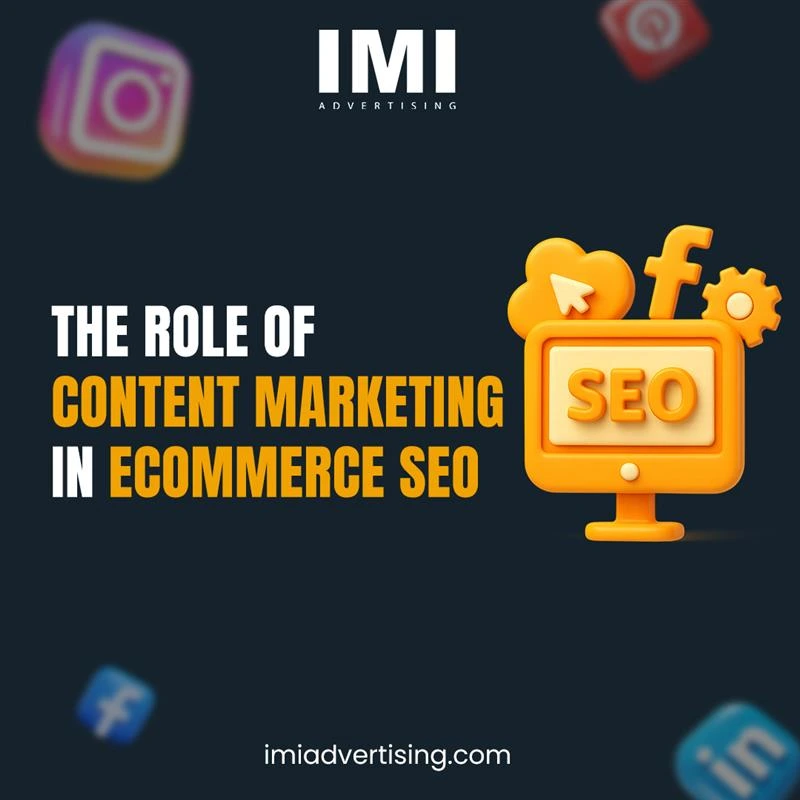Affordable and Effective SEO Services in Ahmedabad – Powered by IMI Advertising

Why Settle for Ordinary When You Can Be Unforgettable Online?
Let’s face it—running a business in Ahmedabad’s competitive digital space can feel like shouting in a crowded market. You’ve invested time, money, and passion into building your brand, but somehow, your website still hides in Google’s shadows. That’s where the best SEO company in Ahmedabad comes in. By optimizing your website and building long-term online visibility, you can get noticed and make Google truly love your business—without relying on flashy ads or gimmicks.
That’s where IMI Advertising comes inoffering professional SEO services in Ahmedabad that deliver not just powerful results but also affordable solutions designed for businesses of all sizes. Whether you’re a local restaurant, a budding startup, or an established enterprise, IMI Advertising brings affordable and effective SEO strategies to help your business thrive where it matters most—on Google’s first page.
Explorer IMI Advertising’s Expert SEO Services in Ahmedabad
Here are our SEO services to help your business show up online and reach more customers.
1. Affordable Doesn’t Mean Compromising on Quality
Many businesses assume that good SEO comes with a hefty price tag. IMI Advertising shatters this misconception by offering cost-effective SEO services without cutting corners. Their mission is simple:
Provide small businesses and big players alike with top-notch SEO strategies in Ahmedabad at competitive pricing.
By focusing on what works—targeted keywords, strategic content, and technical optimization—they make sure every rupee you spend delivers value.
2. Custom SEO Solutions Designed for Ahmedabad’s Market
Ahmedabad is a vibrant hub of commerce, industry, and innovation. Every business here faces unique challenges and customer expectations. IMI Advertising understands this local pulse.
Their team doesn’t offer one-size-fits-all packages. Instead, they deliver customized SEO services in Ahmedabad designed specifically for your business model, audience behavior, and industry trends. From optimizing for “best Gujarati thali near me” to “top industrial suppliers in Ahmedabad,” IMI Advertising ensures your business ranks where your customers are searching.
3. Local SEO That Converts Searches into Sales
Let’s be real—when customers search for services “near me,” they expect instant results. IMI Advertising specializes in local SEO in Ahmedabad that makes your business pop up in local searches and Google Maps.
For example, a customer searching for “plumber in Ahmedabad” shouldn’t have to scroll past five pages to find you. Thanks to strategic Google My Business optimization, local citations, and customer reviews management, IMI Advertising makes sure your business stands out locally.
Their SEO experts in Ahmedabad ensure that every local search drives traffic and leads.
4. Transparent Reporting with Measurable Results
No more guessing games. One of IMI Advertising’s biggest strengths is its transparent reporting system.
You’ll get regular performance reports that clearly show how your SEO Services in Ahmedabad investment translates into:
- Increased website traffic
- Higher local visibility
- More leads and sales
Everything is backed by real data from tools like Google Analytics and Google Search Console, so you know exactly where your money is going.
5. High-Quality Content That Builds Authority
Google doesn’t rank pages—it ranks valuable answers to customer problems. IMI Advertising’s team of expert content creators develops SEO-optimized, engaging, and highly relevant content that educates your audience and earns Google’s trust.
Whether it’s blog posts, service descriptions, or landing pages, every word is written to:
- Target the right keywords
- Solve user queries
- Build your authority in Ahmedabad’s digital space
This approach drives not just traffic, but qualified traffic that turns into loyal customers. Their SEO company in Gujarat expertise ensures content aligns with both user intent and search engine algorithms.
6. Strong Technical SEO Backbone
A beautiful website is great—but a technically optimized website is better. IMI Advertising ensures your website is:
- Fast-loading
- Mobile-friendly
- Structured for easy indexing by Google crawlers
- Equipped with schema markup for rich snippets
These technical optimizations ensure that your website performs flawlessly, giving you a ranking boost while offering visitors a seamless experience. Their SEO agency in Ahmedabad team handles everything from site speed to structured data.
7. Ethical Link Building That Strengthens Your Domain Authority
In the digital world, backlinks are gold. But not all backlinks are created equal. IMI Advertising adheres to white-hat, ethical link-building practices to acquire high-authority backlinks that enhance your website’s reputation.
They collaborate with relevant industry blogs, local directories, and authoritative news sources to create a network of valuable links pointing to your website. This helps you not only climb the rankings but also build credibility in your industry.
Their SEO experts in Ahmedabad focus on building authority and long-term growth.
8. Constant Adaptation to Google Algorithm Updates
Google updates its search algorithms hundreds of times a year. IMI Advertising’s SEO experts stay ahead of these changes, adapting strategies in real time so your rankings don’t drop.
Rather than chasing trends, they focus on long-term, sustainable growth. This proactive approach protects your website from sudden ranking drops and keeps your business consistently visible. Their SEO services in Gujarat adapt to changes quickly and efficiently.
9. Affordable Packages Designed for Every Business Size
Whether you’re a small local business or an expanding enterprise, IMI Advertising offers flexible pricing plans designed to meet your budget and growth goals.
From basic SEO packages that cover essential on-page optimization to comprehensive plans including content creation, technical SEO, and link building—their affordability ensures that no business is left behind.
Their SEO agency in Ahmedabad packages fit all business sizes and budgets.
10. Proven Track Record in Ahmedabad
What truly makes IMI Advertising stand out as the best SEO company in Ahmedabad is its proven track record of success. Businesses across Ahmedabad—retail, services, manufacturing, and startups—have seen tangible improvements in their online presence, lead generation, and revenue growth.
Their client testimonials highlight not just performance, but also the transparent, supportive, and results-driven approach that makes them a trusted SEO company in Gujarat.
The IMI Advertising Difference: Affordable, Effective, Unmatched
When it comes to affordable and effective SEO Services in Ahmedabad, you don’t have to settle for mediocrity or overspending. IMI Advertising offers a perfect balance of affordability, strategy, and long-term results.
Whether you’re seeking the best SEO company in Ahmedabad or a reliable SEO agency in Ahmedabad, IMI Advertising ensures your business shines online.
FAQs:
SEO (Search Engine Optimization) is the process of improving your website so it ranks higher on search engines like Google. For businesses in Ahmedabad, SEO helps attract local customers, increase visibility, and grow sales without spending heavily on ads.
SEO is a long-term strategy. Usually, businesses start seeing visible improvements in 3–6 months. The timeline depends on factors like competition, website condition, and how well the SEO strategy is executed.
Costs vary based on your business size, the services included, and competition in your industry. Packages can range from basic local SEO to full-scale campaigns with content creation, technical optimization, and link building.
SEO builds organic visibility by optimizing your website, producing long-lasting traffic. Paid ads (PPC) bring instant visibility but require ongoing spending. A mix of both can be effective, depending on your goals.
You can track monthly SEO progress using tools like Google Analytics and Google Search Console to monitor website traffic, keyword rankings, and conversions. Also, check backlinks, website health, and local SEO metrics to see overall improvements.
Get in touch with us for
Digital Marketing Services
09313100658
Available From 09:30 – 06:30
Email: support@imiadvertising.com








